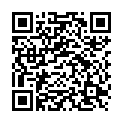|
|
|
| Module code: E927 |
|
3V+1U+1PA (5 hours per week) |
|
5 |
| Semester: 9 |
| Mandatory course: no |
Language of instruction:
German |
Assessment:
Independent project work
[updated 13.03.2010]
|
E927 Electrical Engineering, Master, ASPO 01.10.2005
, semester 9, optional course
|
75 class hours (= 56.25 clock hours) over a 15-week period.
The total student study time is 150 hours (equivalent to 5 ECTS credits).
There are therefore 93.75 hours available for class preparation and follow-up work and exam preparation.
|
Recommended prerequisites (modules):
None.
|
Recommended as prerequisite for:
|
Module coordinator:
Prof. Dr.-Ing. Vlado Ostovic |
Lecturer:
Prof. Dr.-Ing. Vlado Ostovic
[updated 13.03.2010]
|
Learning outcomes:
Students will acquire the skills and techniques to understand the principles underlying the electromagnetic and thermal design of electric machines. They will also learn to describe the machine design process using analytical and numerical algorithms and will be capable of independently developing solutions to selected practical problems. The skills acquired in this course provide students with a solid basis for designing electrical machines with high functional reliability.
[updated 13.03.2010]
|
Module content:
1.Design of electrical machines
1.1 Specific armature current density, air-gap flux density and utilization
factor
1.2 Determining the main dimensions
1.3 Minimizing stray losses; electrodynamic forces; winding insulation
1.4 Power converter effects and how to deal with them
2.Heating and cooling
2.1 Limiting temperatures and insulation classes
2.2 Heat sources and loss densities
2.3 Types of cooling, cooling systems and coolants
2.4 Fluid mechanical relationships
2.5 Heat dissipation, heat transmission and conductance
2.6 Unsteady heat flow and heating
3.Current displacement in machine windings
3.1 Exploiting and avoiding current displacement in electrical machines
3.3 Structure of conductor bars in large polyphase machines
4.Magnetic forces in electric machines and magnetic pull
4.1 Running smoothness and balancing: mechanical aspects
4.2 Magnetic energy, virtual displacement
4.3 Radial air-gap forces in concentric and eccentric rotors
4.4 Electromagnetically generated noise in electrical machines
[updated 13.03.2010]
|
Teaching methods/Media:
Lecture notes, overhead transparencies, video projector, PC
[updated 13.03.2010]
|
Recommended or required reading:
WIEDEMANN, KELLERBERGER: Konstruktion elektrischer Maschinen, Springer-Verlag, 1967
OSTOVIC, V.: Dynamics of Saturated Electric Machines, Springer-Verlag, New York, 1989
KÜPFMÜLLER: Einführung in die theoretische Elektrotechnik, Springer-Verlag, 1973
[updated 13.03.2010]
|


